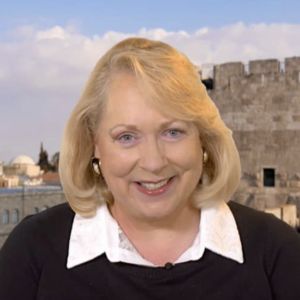For the past several decades discussion of the Israeli-Palestinian conflict has been driven by full-time anti-Israel researchers and writers. This coterie of academics and authors, from Noam Chomsky to Peter Beinart, constantly popped up on panels and had their ideas amplified. Today’s Middle East realities, with new peace agreements and concerns about China’s emerging role, have less time to focus on the Israeli-Palestinian conflict. Consequently we are likely seeing the last generation of professional Israel critics.
Anyone who grew up in the 1990s and early 2000s, the period of the Oslo Accords and Second Intifada, got used to the idea that Israel’s existence was up for debate. It was taken for granted that there was something called “opposition to Israel” and no shortage of ink was spilled on the question of Israel’s “right to exist.” Only those stuck in the era of the Oslo Accords and earlier, when harsh conflict between Israel and the Arab states was the norm, could suggest that the whole country of Israel might not exist one day. Now, with 70 years’ hindsight, it is clear that Israel does exist like some 200 other countries and it isn’t going to be fundamentally changed.
Nevertheless, in the U.S. and some other Western countries there are still academic and activist panel discussions about the “one-state solution,” usually involving only non-Palestinians who sit and discuss whether Palestinians in Gaza and the West Bank can be shoehorned into some kind of Frankenstein-like state that combines Israel with the autonomous Palestinian Authority and Hamas-run Gaza. Why do people even discuss this? They don’t discuss turning India, Pakistan and Bangladesh into “one state” or combining Croatia, Serbia, Bosnia and Kosovo back into “one state.” Only with Israel is one-state solution activism given credence, though primarily in Western academic and far-left journalistic circles.
The reason this discussion—which would be laughable if a bunch of Western academics sat in a room and talked about combining Japan and China into one state, without asking Japanese and Chinese residents what they think—has received any acceptability in discussions on Israel is because of the network of professional Israel critics that emerged in the last decades. But these activists, who we got used to seeing at the anti-Israel Durban conference in 2001 and again in the “boycott, divestment and sanctions” movement, are growing older and becoming less relevant.
There are several reasons the anti-Israel crowd is becoming less relevant and that this generation may be the last of professional anti-Israel activists. First, some members of the crowd have drifted into commenting on other conflicts. Being an Israel critic once offered an entrée to fame and a feeling of instant expertise. Whole books were written by figures like Max Blumenthal, Ali Abunimah and others, who have turned their attention in recent years to the Syrian conflict and now China. Stunts got some of the activists attention, like Code Pink unfurling a banner at Israel’s Western Wall in 2015. Ten years ago there were so many wealthy anti-Israel activists with spare time on their hands they even tried to fly en masse to Israel as part of a “flytilla.” Israel deported them, just as it had intercepted some yachts that tried to break the blockade of Gaza.
The stunts have now largely ended. The spring breaks bringing students to Israel in activist caravans hoping to “see the conflict” have been reduced by the pandemic. The world is moving on from its focus on the Israeli-Palestinian conflict and as such there is less interest in the antics of the activists and less profitability in being a full-time anti-Israel critic. Panel discussions on the one-state solution will still exist, but for commentators who became famous for their hostility to Israel, there can only be so many articles proposing it. Israelis and Palestinians don’t want one state. They may not end up with two states, but that doesn’t mean they want Israel critics guiding their future.
The peace deals between Israel and several Gulf states in 2020 largely ended the conflicts with Arab states which had dominated the country’s first seventy years. Israel now faces Iranian proxies such as Hezbollah, but these proxies are also disliked by much of the region. There is less hunger in the Middle East for input from Western activists who propose new “solutions.” And in the West, there is less readiness to see Israel as a major issue in the world when there are so many others happening. Anti-Israel activism gained fuel from regimes in the Middle East and even the Soviet Union in the decades before Oslo. These factors have all since shifted, moving the West toward a more reasonable discussion about Israel’s policies and how Israel can play a positive, stabilizing role in the Middle East. The conversation now is about interfaith dialogue, coexistence and reducing tensions. Those who piggy-backed on the conflict for decades now find they don’t have an audience in the Middle East and consequently are largely talking to themselves in the West.
Reprinted with author’s permission from Middle East Forum




